Unlock the endless benefits of having a garden and immerse yourself in nature’s beauty and tranquility right at your doorstep. Having a garden is more than just a hobby – it’s a way to connect with the natural world, improve your physical and mental well-being, and enjoy the satisfaction of growing your own food.
Key Takeaways:
- Having a garden provides a direct connection to nature and offers a sense of tranquility and peace.
- Gardening is a popular activity that has gained even more popularity recently, despite easy access to food at grocery stores.
- During the COVID-19 pandemic, gardening became a way for people to find solace, relieve stress, and ensure a reliable food supply.
- Gardening offers numerous physical benefits, including increased exercise, improved balance, strength, and flexibility.
- Homegrown produce is not only delicious but also offers unique nutritional benefits and contributes to a healthier diet.
- Spending time in nature and gardening have positive effects on mental and emotional well-being, reducing stress levels and improving mood.
- Gardening is a social activity that brings people together, fosters a sense of community, and provides opportunities for shared experiences.
- Starting a garden requires careful planning and research, but it can be a rewarding and fulfilling experience.
- Personal stories and experiences from gardeners highlight the joy and satisfaction that can be found in gardening.
- Overcoming challenges in gardening and celebrating successes can bring a sense of achievement and pride.
- Having a garden is a way to embrace nature, enjoy its numerous benefits, and create a beautiful and tranquil space of your own.
Vegetable Gardens: Ancient Roots and Growing Popularity
Vegetable gardens have been a critical way for ancient people to have access to reliable, nutritious foods, and they have gained even more popularity in recent years, despite easy access to food at grocery stores. In fact, gardening has become a beloved pastime for many, as it offers a range of benefits for both physical and mental well-being.
When you grow your own vegetables, you have the satisfaction of knowing exactly where your food comes from and how it was grown. This means you can enjoy the freshest, most flavorful produce possible. Plus, it’s a great way to save money on your grocery bill, especially if you’re buying organic.
Gardening is not only a great way to get outside and get active, but it also has numerous mental health benefits. It can reduce stress, improve mood, and provide a sense of accomplishment as you watch your plants thrive.
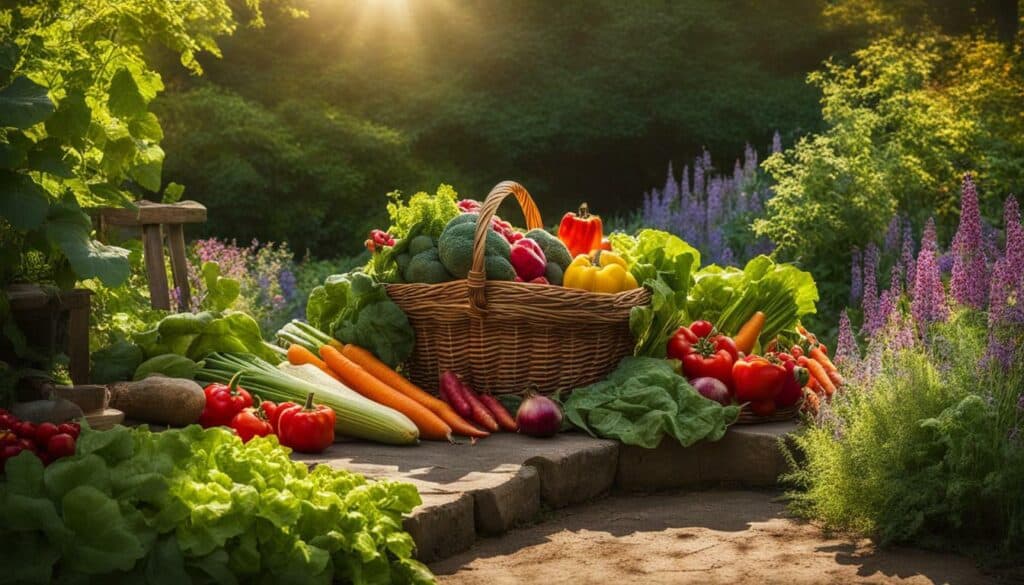
Gardening also allows you to connect with nature in a very tangible way. As you tend to your plants and witness their growth, you’ll feel a deep sense of connection to the natural world. Spending time outdoors has been shown to reduce heart rate, muscle tension, and lower blood pressure.
Furthermore, vegetable gardening is a continuous learning process that offers opportunities to expand your knowledge and skills. You can learn about plant care, soil composition, and even basic carpentry if you choose to build and maintain raised beds or trellises.
Teaching your children about where food comes from and the importance of taking care of the environment is also made easier through gardening. It provides an interactive and hands-on experience that can instill a deeper appreciation for nature and healthy eating habits.
Benefits of Vegetable Gardening:
- Fresh, delicious produce
- Save money
- Get outside and get active
- Improve mental health
- Connect with nature
- Learn new skills
- Teach your kids about where food comes from
- Grow your own herbs
- Enjoy a sense of accomplishment
- Improve the environment
Mary, have you ever seen quail before you planted those native shrubs over there?” I ask.
The Impact of Urban Gardening
Urban gardening has become increasingly popular, with more people embracing the idea of growing their own vegetables even in urban settings. Limited space is no longer a barrier, as urban gardeners find innovative ways to utilize balconies, rooftops, and even vertical spaces to create flourishing gardens.
Urban gardens not only provide fresh produce for city dwellers but also offer a host of other benefits. They contribute to the greening of urban areas, helping to improve air quality and mitigate the heat island effect. Additionally, these gardens foster a sense of community and improve social connections as neighbors come together to share seeds, knowledge, and even harvests.
Urban gardening is a powerful way to reclaim the urban landscape and transform it into a vibrant and sustainable environment. It allows individuals to establish a deeper connection with nature, no matter how small their living space may be.
A study found that gardening experienced a surge in popularity during the COVID-19 pandemic
Gardening proved to be a source of comfort and connection with nature during the challenging times of the pandemic. A study conducted during the COVID-19 pandemic found that people turned to their gardens as a way to find solace and escape from the worries and anxieties of the world. With restrictions limiting outdoor activities and the need to practice social distancing, many individuals discovered the therapeutic benefits of gardening.
In addition to providing a sense of peace and tranquility, gardening offered a way for individuals to feel a connection to nature. As people spent more time at home, they sought to create outdoor spaces that would allow them to experience the beauty of nature right at their doorstep. Urban gardening became particularly popular, as individuals with limited space utilized balconies, rooftops, and even windowsills to create their own green oasis.
“Gardening provides a sense of purpose and accomplishment as you watch your plants grow and flourish.”
Gardening also offered a way for individuals to provide for themselves and their families during uncertain times. With concerns about food shortages and the need for self-sufficiency, many people turned to vegetable gardening to grow their own produce. This not only ensured a steady supply of fresh and nutritious food but also gave individuals a sense of empowerment and control over their own food sources. By cultivating their own vegetables, they were able to reduce their reliance on external food systems and foster a greater sense of resilience.
As the study revealed, the surge in gardening during the pandemic had a profound impact on people’s well-being. It provided a much-needed escape from the challenges of daily life and offered a sense of purpose and accomplishment as individuals watched their gardens thrive. Gardening allowed people to connect with nature, nurture their own well-being, and create a sustainable and self-sufficient way of life.
Connecting with Nature: The Impact of Gardens during the Pandemic
Gardening during the COVID-19 pandemic offered a multitude of benefits to individuals seeking solace, connection, and self-sufficiency. With more time spent at home, people turned to gardening as a way to find peace, reconnect with nature, and provide for themselves and their families. The surge in popularity of gardening during the pandemic exemplifies the power of this activity to improve mental well-being, foster a sense of belonging, and promote self-reliance.
Engaging in gardening activities provides a wonderful opportunity for exercise
Engaging in gardening activities provides a wonderful opportunity for exercise, as you perform functional movements that mimic whole-body exercises, such as squats, lunges, and working large muscle groups. Whether you’re weeding, digging, planting, or carrying supplies, gardening can be a physically intense activity that helps to increase your strength, flexibility, and overall fitness.
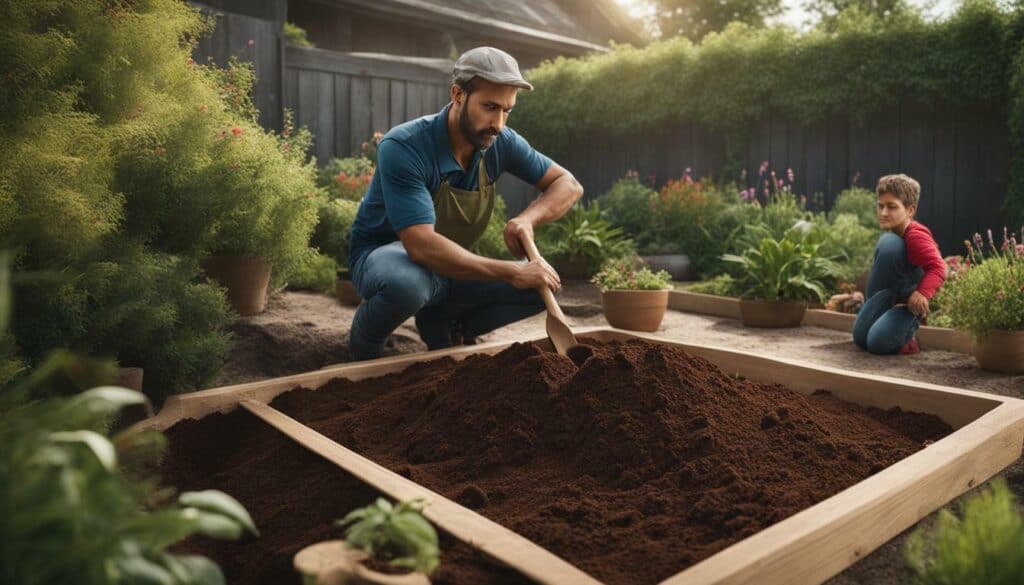
When you spend a busy day in the garden, you’ll burn calories and work up a sweat, similar to a workout in the gym. The various movements involved in gardening provide a full-body workout, helping to improve your cardiovascular health and build muscle tone.
If you’re new to gardening or have physical limitations, don’t worry. Gardening activities can be modified to suit your needs. For example, if you have back pain, you can use a small stool or raised garden beds to reduce strain on your back. If kneeling is challenging, a shovel or rake can provide support for your knees when squatting. Additionally, using smaller pots and purchasing lighter bags of mulch or soil can make the lifting and carrying tasks easier.
Aside from the physical benefits, gardening also offers a range of other advantages. It allows you to connect with nature, reduces stress levels, and provides opportunities for social interaction and personal satisfaction.
Benefits of Exercise in Gardening
Gardening activities involve various physical movements that contribute to overall fitness and well-being. Here are some specific benefits of exercise in gardening:
| Physical Benefits | Mental and Emotional Benefits |
|---|---|
|
|
“Engaging in gardening activities provides a wonderful opportunity for exercise, as you perform functional movements that mimic whole-body exercises, such as squats, lunges, and working large muscle groups.”
As you can see, gardening offers not only physical exercise but also numerous mental and emotional benefits. It’s a holistic activity that nourishes both the body and the mind.
So, if you’re looking for a fun and fulfilling way to stay active and improve your overall well-being, gardeni
The Nutritional Value of Homegrown Produce
Growing and consuming your own fruits and vegetables can have a significant impact on your diet, ensuring you enjoy fresh and nutritious produce throughout the year. When you grow your own food, you have control over how it is grown and can avoid harmful pesticides and chemicals. This means you can enjoy the benefits of organic, pesticide-free produce right in your own backyard.
Homegrown fruits and vegetables are not only delicious, but they are also packed with essential vitamins, minerals, and antioxidants that are beneficial for your health. Here are some key nutritional benefits of homegrown produce:
- High in Vitamins and Minerals: Homegrown fruits and vegetables are rich in vitamins and minerals that are essential for good health. For example, leafy greens like spinach and kale are high in iron and vitamin K, which are important for healthy blood and bones. Carrots are loaded with beta-carotene, which the body converts into vitamin A.
- Rich in Antioxidants: Antioxidants are compounds that help protect your cells from damage caused by harmful free radicals. Homegrown produce, especially brightly colored fruits and vegetables like tomatoes, berries, and peppers, are high in antioxidants such as vitamin C and lycopene.
- Fiber-Rich: Fruits and vegetables are excellent sources of dietary fiber, which is important for digestive health and can help prevent constipation. Fiber also helps regulate blood sugar levels and can contribute to weight management.
- Low in Calories: Many homegrown fruits and vegetables are low in calories, making them an ideal choice for those watching their weight. You can enjoy a variety of delicious, filling produce without worrying about excessive calorie intake.
- Seasonal Variety: When you grow your own food, you have the opportunity to experiment with a wide variety of fruits and vegetables that may not be readily available in stores. This allows you to enjoy the benefits of a diverse, seasonal diet.
By incorporating homegrown fruits and vegetables into your diet, you can ensure that you are getting the maximum nutritional value from your food. The freshness of homegrown produce means that it retains more of its nutrients, as opposed to store-bought produce that may have been sitting on shelves for several days.
“When you grow your own food, you have control over how it is grown and can avoid harmful pesticides and chemicals.”
Not only do homegrown fruits and vegetables provide exceptional nutritional benefits, but they also taste better. The flavor of homegrown produce is often more vibrant and intense compared to store-bought varieties. This is because homegrown fruits and vegetables are allowed to fully ripen on the vine, resulting in a sweeter, more flavorful taste.
In addition to the nutritional benefits, gardening itself can be a physically and mentally rewarding activity. Spending time outdoors, connecting with nature, and engaging in physical activity while tending to your garden can contribute to overall well-being.
So, why not start your own garden and experience the joy and nutritional benefits of homegrown produce? Whether you have a backyard or just a small balcony, there are plenty of options for growing your own fruits and vegetables. Get started today and take a step towards a healthier, more sustainable lifestyle.
Gardening offers a therapeutic escape to the outdoors, where you can rejuvenate your mind and soul, reduce stress levels, and find solace in the beauty of nature.
Gardening is not just about planting and harvesting; it is a way to connect with the natural world and find peace in the serenity of the outdoors. Whether you have a small backyard or a balcony, creating a garden space can have a profound impact on your well-being. In fact, numerous studies have shown that spending time in nature can reduce stress, improve mood, and enhance overall mental and emotional health.
When you step into your garden, you enter a realm where the worries and stresses of daily life seem to fade away. The scent of flowers, the sound of chirping birds, and the gentle touch of a breeze on your skin create a sensory experience that is both calming and invigorating.

The Therapeutic Benefits of Gardening
The act of gardening itself has been shown to have numerous therapeutic benefits. Here are a few ways that gardening can positively impact your mental and emotional well-being:
- Stress Reduction: Gardening provides a sense of calm and tranquility, allowing you to escape from the pressures of everyday life. The rhythmic motion of planting, weeding, and watering can be meditative and help to alleviate stress.
- Mood Enhancement: Spending time in nature has been linked to an improvement in mood and a reduction in symptoms of anxiety and depression. The beauty of the garden, the vibrant colors, and the sense of accomplishment from nurturing plants can all contribute to a more positive outlook.
- Connection with Nature: Gardening allows you to connect with the natural world in a meaningful way. You become attuned to the changing seasons, the cycles of growth and decay, and the interconnectedness of all living things. This connection can foster a sense of awe, wonder, and gratitude.
- Sensory Stimulation: Gardens engage all of your senses, stimulating your mind and bringing you into the present moment. The vibrant colors of flowers, the soft touch of leaves, the earthy smell of soil, and the melodic sounds of birds singing can awaken your senses and provide a sensory escape.
“Gardening is the purest of human pleasures.” – Francis Bacon
Gardening is the purest of human pleasures. It is the greatest refreshment to the spirits of man, without which buildings and palaces are but gross handiworks; and a man shall ever see that when ages grow to civility and elegancy, men come to build stately sooner than to garden finely.
Creating and maintaining a garden space allows you to immerse yourself in the beauty and tranquility of nature. It provides a sanctuary where you can find solace, restore your energy, and nurture your inner self.
Gardening Tips for Creating an Outdoor Oasis
Here are some gardening tips to help you create a peaceful and rejuvenating outdoor oasis:
- Create a Relaxing Space: Design your garden with comfortable seating areas, such as a cozy bench or hammock, where you can sit and unwind.
- Choose Calming Colors: Select plants and flowers with soothing colors like blues, purples, and whites to create a serene atmosphere.
- Incorporate Meditative Elements: Consider adding a small water feature, such as a fountain or a pond, to create a peaceful ambiance with the sound of flowing water.
- Embrace Natural Beauty: Allow your garden to take on its own natural form, embracing the imperfections and celebrating the unique beauty of each plant.
- Create a Sensory Garden: Include plants that engage all your senses, such as fragrant herbs, textured leaves, and colorful blooms, to create a sensory delight.
By following these tips, you can transform your garden into a tranquil sanctuary that promotes relaxation, mindfulness, and a deep connection with the natural world.
A garden is not merely a collection of plants; it is an escape to a world of beauty, tranquility, and healing. As you tend to your garden, you will find that the act of nurturing and growing plants mirrors the process of nurturing and growing your own well-being.
So, step outside, breathe in the fresh air, feel the warm sun on your skin, and immerse yourself in the therapeutic world of gardening. Let nature embrace you, and you will find solace and serenity in the great outdoors.
Gardening not only nourishes plants but also cultivates meaningful social connections
Gardening not only nourishes plants but also cultivates meaningful social connections, bringing together individuals with a shared passion for nature and gardening. The act of gardening creates opportunities for people to connect with one another, share their knowledge and experiences, and form lasting friendships. Whether it’s through joining a gardening community, participating in local gardening events, or simply exchanging tips and advice with fellow gardeners, the social aspect of gardening adds an extra layer of fulfillment to the gardening experience.
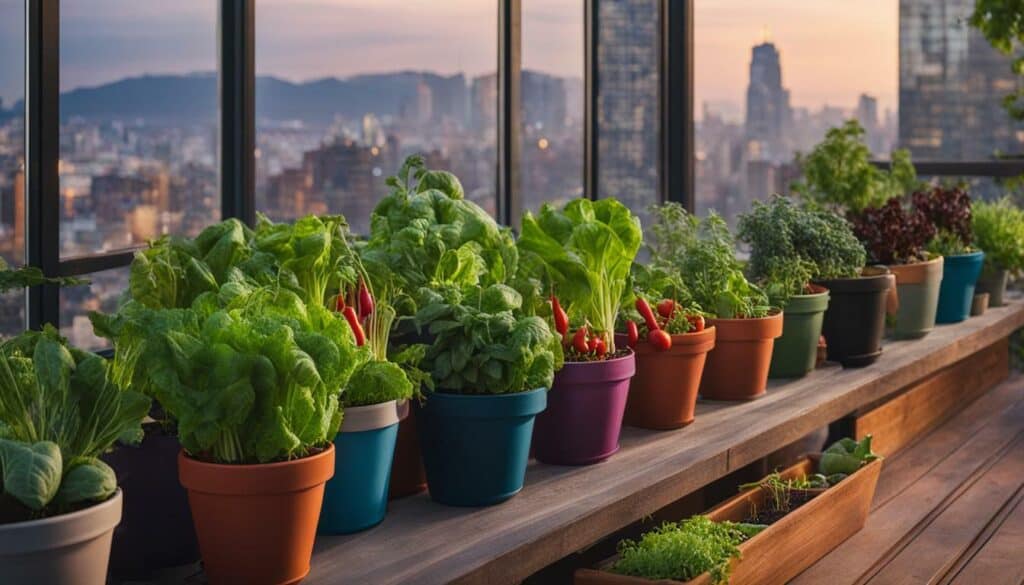
Urban gardening, in particular, has seen a surge in popularity in recent years. With limited space available in urban areas, individuals have found creative ways to transform their balconies, rooftops, and even small backyard spaces into thriving gardens. This has led to the formation of urban gardening communities, where like-minded individuals come together to share their love for gardening and exchange ideas on how to make the most of limited space.
Backyard gardens also provide an opportunity for social connection. Many people take pride in their backyard gardens and are eager to showcase their hard work and beautiful plants to friends, family, and neighbors. This often leads to conversations and exchanges about gardening techniques, plant varieties, and landscaping ideas. In this way, backyard gardens become a focal point for social gatherings and a source of inspiration for others.
“Gardening not only nourishes plants but also cultivates meaningful social connections, bringing together individuals with a shared passion for nature and gardening.”
In addition to connecting with other gardeners, gardening also fosters a sense of connection with nature. Spending time outdoors, tending to plants, and observing the natural world around us can be a deeply grounding and meditative experience. It allows us to slow down, appreciate the beauty of our surroundings, and develop a deeper understanding and appreciation for the environment.
- Urban gardening
- Backyard garden
- Garden ideas
Gardening is a journey that is meant to be shared. Whether it’s through joining a gardening club, attending gardening workshops, or simply chatting with other gardeners at your local nursery, the social connections that come from gardening enrich our lives and create a sense of belonging. So, why not grab a shovel, get your hands dirty, and join the vibrant gardening community?
Starting Your Own Garden: Tips for Success
If you’re considering starting your own garden, here are three essential tips for success: start small, build a network of fellow gardeners, and research the plants that thrive in your climate.
Starting small is key when it comes to gardening. It’s easy to get excited and want a large plot with many plants, but taking on too much can lead to stress and overwhelm. Begin with a small area that you can easily manage and expand as you gain more experience and confidence.
Building a network of fellow gardeners is invaluable. Connect with other people who share your passion for gardening, whether through local gardening clubs, online forums, or community gardening projects. By learning from each other’s successes and failures, you’ll gain valuable insights and tips that can help you navigate the challenges of gardening.
Researching the plants that thrive in your climate is crucial for a successful garden. Different plants have different requirements, such as sunlight, soil type, and watering needs. Consult with local experts, such as master gardeners or agricultural resource offices, to get advice on the best plants for your area. By choosing plants that are well-suited to your climate, you’ll increase your chances of success and reduce the stress and disappointment that can come from struggling plants.
| Tip | Description |
|---|---|
| Start small | Begin with a small area that you can easily manage and expand as you gain more experience and confidence. |
| Build a network | Connect with other gardeners to learn from their experiences and gain valuable insights and tips. |
| Research appropriate plants | Consult with local experts to determine which plants thrive in your climate and meet the specific requirements of your area. |
By following these tips, you’ll be well on your way to a successful garden that brings you joy and satisfaction. Remember, gardening is a continuous learning process, so don’t be afraid to experiment and try new things. Enjoy the journey and the abundance of nature that awaits you in your own backyard.
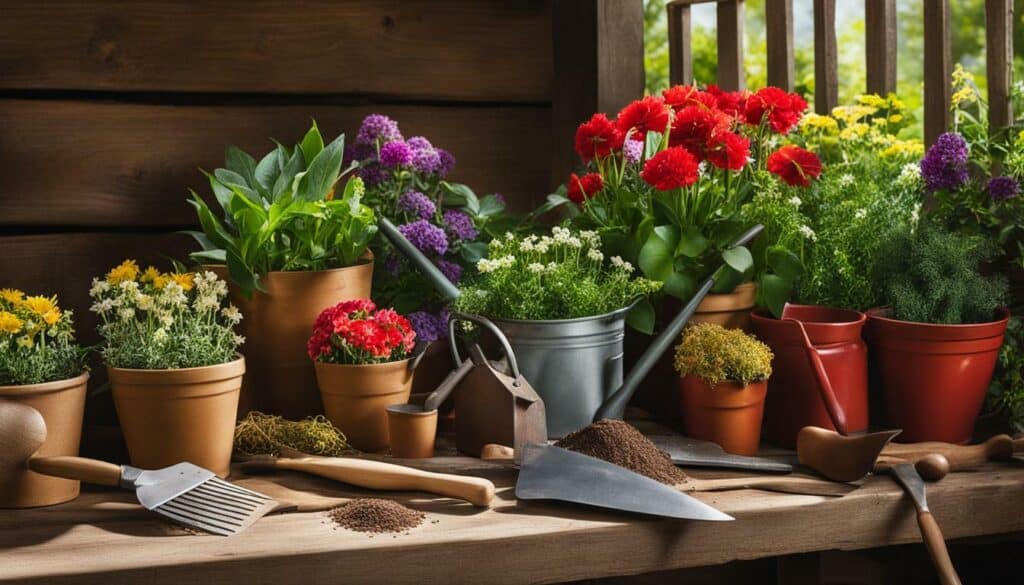
“Starting small is key when it comes to gardening. It’s easy to get excited and want a large plot with many plants, but taking on too much can lead to stress and overwhelm. Begin with a small area that you can easily manage and expand as you gain more experience and confidence.” – Lisa Wimmer
Research and Plan
Before you start planting, take the time to research and plan your garden. Consider factors such as sunlight, soil quality, and the space available. This will help you choose the right plants and create a layout that maximizes productivity and aesthetics.
- Research the plants that thrive in your climate and choose varieties that suit your preferences and needs.
- Plan the layout of your garden, taking into account factors such as sunlight, shade, and water availability.
- Consider companion planting, which involves planting complementary plants together to promote healthy growth and deter pests.
By researching and planning, you’ll set yourself up for success and create a garden that is both beautiful and productive.
Gardeners Share their Personal Experiences and Stories
Gardeners from different backgrounds share their personal experiences and stories, highlighting the joy and fulfillment they have found through cultivating their gardens. Whether it’s a small backyard garden or a sprawling vegetable patch, these gardeners have discovered the many benefits that come from nurturing their own plants.

Creating a Backyard Oasis
One gardener, Sarah, transformed her small backyard into a tranquil oasis. She carefully designed her garden, incorporating beautiful flowers, fragrant herbs, and a cozy seating area. Sarah shared, “Having a backyard garden has completely transformed my space. It’s where I go to relax, unwind, and reconnect with nature. I love sitting among the flowers and listening to the birds chirping. It brings me so much joy and peace.”
Sarah’s garden not only provides her with a place of solace but also attracts butterflies and bees, contributing to the local ecosystem. She takes pride in creating a welcoming habitat for these pollinators and enjoys observing their interactions with her garden.
Thriving in Urban Spaces
For urban gardeners like Mark, finding creative ways to cultivate plants in limited spaces is a rewarding challenge. He has transformed his small balcony into a lush oasis, full of potted plants and hanging baskets. Mark shared, “I may not have a sprawling backyard, but that doesn’t stop me from gardening. My balcony garden brings nature to my urban environment. It’s amazing how much you can grow in a small space.”
Mark has also found that his garden has become a conversation starter with his neighbors. They often admire his green thumb and ask for gardening tips. He enjoys sharing his knowledge and fostering a sense of community through his love of gardening.
From Seed to Harvest
Emily, an avid vegetable gardener, finds immense joy in growing her own food. She loves the process of starting plants from seeds, tending to them as they grow, and eventually harvesting the fruits of her labor. Emily said, “There’s something incredibly satisfying about putting in the work and then enjoying the literal fruits and vegetables of my labor. The taste of a freshly picked tomato or the crunch of a just-pulled carrot is unbeatable.”
Emily also appreciates the sense of self-sufficiency that comes from growing her own produce. She feels a deep connection to the food she eats and takes pride in knowing exactly where it comes from. Emily encourages others to give gardening a try, even if it’s just a small herb garden on a windowsill. She believes everyone can experience the joy of growing their own food.
“Gardening is my form of therapy. It allows me to escape the stresses of everyday life and focus on something beautiful and meaningful.” – Rachel, passionate gardener
Gardeners like Rachel find solace and peace in their gardens. They consider gardening as a form of therapy, a way to disconnect from the hustle and bustle of daily life and find a sense of calm. Rachel shared, “When I step into my garden, I leave all my worries behind. It’s my sanctuary, where I can be fully present and at peace. Gardening has truly transformed my mental and emotional well-being.”
| Gardener | Experience |
|---|---|
| Sarah | Transformed her small backyard into a tranquil oasis |
| Mark | Cultivated a lush balcony garden in an urban environment |
| Emily | Found joy in growing her own vegetables |
| Rachel | Viewed gardening as a form of therapy |
Gardening is a deeply personal and fulfilling experience for many. It allows individuals to connect with nature, nurture life, and find solace in the simple act of tending to plants. These stories from passionate gardeners demonstrate the wide-ranging joys and benefits that come from cultivating a garden of your own.
Overcoming Challenges and Celebrating Success in Gardening
Gardening, like any endeavor, comes with its fair share of challenges, but with determination and resilience, the rewards and sense of accomplishment are immeasurable. Whether you’re dealing with pests, unpredictable weather, or a lack of gardening experience, there are ways to overcome these obstacles and celebrate your successes in gardening.
Dealing with Pests
Pests can be a frustrating challenge for gardeners, but there are several strategies to manage them effectively. One technique is to encourage beneficial insects that prey on garden pests, such as ladybugs for aphids or praying mantises for caterpillars. Another approach is to use organic pest control methods like neem oil or insecticidal soap, which are environmentally friendly and safe for plants. By staying vigilant and taking proactive measures, you can minimize pest damage and keep your garden thriving.
Managing Unpredictable Weather
Weather can be unpredictable and pose challenges for gardeners, especially in areas with extreme climates. To mitigate the impact of weather on your garden, consider using protective measures like row covers or cold frames to extend the growing season and shield plants from frost. Planting resilient varieties that are well-suited to your climate can also increase your chances of success. Additionally, implementing proper watering techniques, such as drip irrigation or mulching, can help conserve water and protect plants during drought conditions.
Learning from Mistakes and Experimenting
Gardening is a continuous learning process, and making mistakes is inevitable. However, viewing mistakes as valuable learning opportunities can help you grow as a gardener. Keep a gardening journal to track your successes and failures, allowing you to identify patterns and adjust your approach accordingly. Don’t be afraid to experiment with different plant varieties, techniques, and garden designs to find what works best for your specific conditions and preferences. Embracing a growth mindset and being open to trying new things will lead to greater success in the long run.
Celebrating Your Harvest
One of the most rewarding aspects of gardening is reaping the fruits of your labor. Take the time to celebrate your harvest and share it with others. Whether you’re enjoying a home-cooked meal made with your freshly picked vegetables or gifting a bouquet of homegrown flowers to a friend, savoring and sharing the products of your garden can bring immense joy and a sense of accomplishment.
“Gardening requires lots of water – most of it in the form of perspiration.” – Lou Erickson
As Lou Erickson humorously suggests, gardening requires effort and hard work. However, the satisfaction of seeing your garden thrive, witnessing the beauty of nature, and enjoying the fruits of your labor makes it all worthwhile. So, embrace the challenges, celebrate your successes, and let your garden be a source of joy and fulfillment.
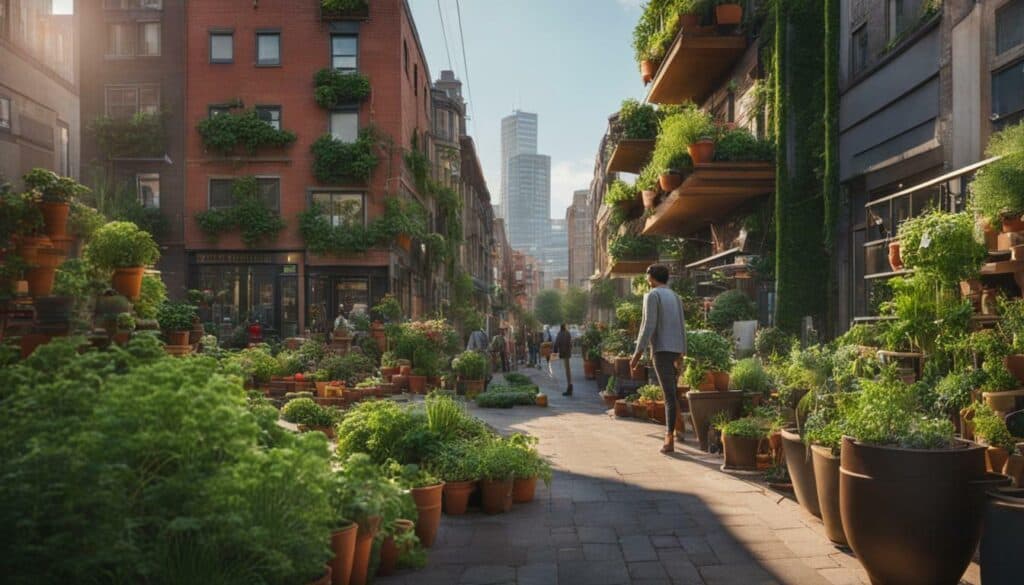
Cultivating a Garden: A Source of Joy, Connection, and Well-Being
Cultivating a garden brings immense joy, connecting us with nature, improving our physical and mental well-being, fostering social connections, and offering a sense of accomplishment and fulfillment. Whether you have a small backyard garden, a rooftop oasis, or a few potted plants in a sunny corner of your home, the act of nurturing and tending to living plants can have a profound impact on our lives.
Research has shown that spending time in nature has numerous health benefits, and having a garden allows us to bring nature right to our doorstep. From the simple pleasure of watching plants grow to the satisfaction of harvesting homegrown produce, a garden provides a tangible connection to the natural world.
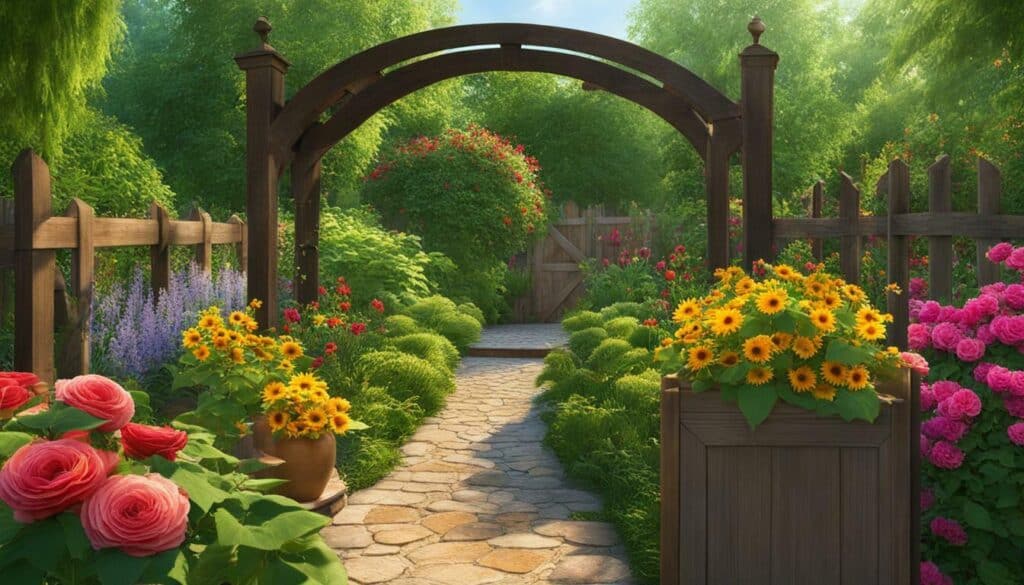
The Necessity and Popularity of Vegetable Gardens
Vegetable gardens have a long history of providing reliable, nutritious food for ancient civilizations. In recent years, the popularity of vegetable gardening has surged, despite the convenience of easily accessible grocery stores. Many people are drawn to the idea of growing their own food, knowing exactly where it comes from and how it was grown. Vegetable gardens not only offer fresh and delicious produce but also provide a sense of self-sufficiency and sustainability.
Connecting with Nature: The Impact of Gardens during the Pandemic
The COVID-19 pandemic has further highlighted the importance of gardens as people sought solace, stress relief, and a connection to nature during times of lockdowns and restrictions. Gardening became a way to bring a sense of normalcy and positivity into our lives. Urban gardening, in particular, gained popularity as city dwellers looked for ways to create green spaces in their homes and communities.
The Physical Benefits of Gardening
Gardening is not just a leisurely activity; it can also provide significant physical exercise. Tending to a garden involves a variety of movements, such as bending, lifting, digging, and walking, which can improve strength, flexibility, and balance. It can be an effective way to incorporate physical activity into our daily lives while enjoying the outdoors.
The Nutritional Value of Homegrown Produce
Homegrown fruits and vegetables offer unparalleled nutritional value. By growing your own produce, you have control over the use of pesticides and fertilizers, ensuring that your food is fresh, organic, and free from harmful chemicals. Different fruits and vegetables provide a range of unique health benefits, from antioxidants to essential vitamins and minerals.
Embracing the Outdoors: The Mental and Emotional Benefits of Gardening
Spending time in nature has been proven to reduce stress levels, improve mood, and enhance mental well-being. Gardening offers a peaceful and meditative experience, allowing us to disconnect from the pressures of daily life and reconnect with the natural world. It provides a sense of purpose and accomplishment, boosting self-esteem and promoting overall mental wellness.
Cultivating Social Connections through Gardening
Gardening has the power to bring people together and foster social connections. Whether it’s joining a local gardening club, sharing tips and experiences with fellow gardeners, or participating in community gardening projects, the gardening community offers a supportive and inclusive environment. It provides an opportunity to learn from others, exchange ideas, and celebrate the joy of gardening as a shared experience.
Starting Your Own Garden: Tips for Success
If you’re inspired to start your own garden, here are a few tips to set you up for success:
- Start small. Begin with a few plants or a small plot to avoid feeling overwhelmed. You can always expand your garden in the future.
- Build a network. Connect with other gardeners in your community to exchange knowledge, resources, and support.
- Research appropriate plants. Consider the climate and conditions of your area to select plants that will thrive in your garden. Consult local experts or resources to ensure success.
Personal Experiences and Stories of Gardeners
“While working in my garden, I heard a rustle in the sagebrush I recently planted,” says Mary, a passionate gardener. “As I tip-toed toward the shrub for a closer look, a momma quail and her five goofball babies came scurrying out! I didn’t know if I should be startled or filled with laughter as they tumbled over one another in a hasty retreat.”
Personal stories and experiences from gardeners like Mary highlight the unique joys and surprises that come with gardening. Each gardener has their own journey and discoveries, adding to the collective wisdom and inspiration of the gardening community.
Overcoming Challenges and Celebrating Success in Gardening
While gardening brings immense joy, it also comes with its fair share of challenges. From unpredictable weather to pests and diseases, gardeners must overcome obstacles and learn from failures. However, these setbacks only make the successes more rewarding. The perseverance and satisfaction gained from nurturing a plant to thrive and witnessing the fruits of your labor is truly gratifying.
Conclusion
Cultivating a garden is not just about growing plants; it is a transformative and enriching experience. It brings us closer to nature, improves our physical and mental well-being, supports social connections, and offers a sense of accomplishment and fulfillment. Whether you have a green thumb or are just starting out, embarking on your own garden journey can bring immeasurable joy and countless benefits. So, grab your gardening tools, dig in the dirt, and let nature embrace you.
Start your garden journey today and unlock the endless benefits of having a garden
As you immerse yourself in nature’s beauty and find peace and fulfillment right at your doorstep.
Growing your own food in a garden has long been a way for people to have access to reliable, nutritious foods. But in recent years, the necessity and popularity of vegetable gardens have increased, even with easy access to food at grocery stores.
Interest in gardening has soared, particularly during the COVID-19 pandemic. As people spent more time at home, they turned to their gardens for a connection to nature, stress relief, and food provisions.
But the benefits of having a garden go beyond just providing food. It also offers numerous physical, mental, and emotional advantages.
For starters, gardening is a great form of exercise. It involves functional movements that mimic whole-body exercise, such as squats, lunges, and carrying heavy bags of mulch or supplies. Gardening can improve your balance, strength, and flexibility, and can even burn as many calories as a workout in the gym.
Growing your own fruits and vegetables can have a positive impact on your diet. Gardeners are more likely to include vegetables as part of a healthy, well-balanced diet, reaping the unique health benefits that different vegetables offer.
Spending time in nature has been shown to have numerous physical and mental health benefits. Being outdoors improves digestion, immune response, and oxygen levels in the blood. It reduces heart rate, muscle tension, and blood pressure. And gardening, in particular, has been proven to reduce stress, lighten mood, and provide a soothing rhythm to ease stress.
Gardening also fosters social connections and a sense of community. The gardening community is rich with people who are willing to share their knowledge and expertise. Community garden plots bring together people from diverse backgrounds to work towards a common goal, strengthening social connections and providing support during difficult times.
If you’re considering starting your own garden, here are some tips for success. Start small and gradually increase the size of your garden as you gain experience. Build a network of fellow gardeners who can offer guidance and support. And research appropriate plants for your climate to improve your chances of success and lower stress and disappointment.
But don’t just take my word for it. Countless gardeners have shared their personal experiences and stories, highlighting the joys and benefits they’ve discovered through gardening. They’ve overcome challenges, celebrated successes, and found a sense of fulfillment in nurturing their own piece of nature.
In conclusion, starting a garden is a rewarding journey that brings countless benefits. From the physical exercise, improved diet, and connection to nature, to the mental and emotional well-being and social connections it fosters, having a garden truly enriches your life. So why wait? Start your garden journey today and experience the joy and fulfillment of having a garden right at your doorstep.
FAQ
Q: What are the benefits of having a garden?
A: Having a garden can provide fresh and delicious produce, save money, improve mental health, connect you with nature, teach kids about where food comes from, and give you a sense of accomplishment. It can also improve the environment by reducing your carbon footprint and controlling pesticide and fertilizer use.
Q: How can gardening improve physical health?
A: Gardening involves functional movement that mimics whole body exercise, such as squats and lunges. It can help increase exercise, improve balance, strength, and flexibility, and provide a good form of physical activity.
Q: What are the nutritional benefits of growing your own fruits and vegetables?
A: Growing and eating your own fruits and vegetables can have a positive impact on your diet. Different vegetables have unique health benefits, such as reducing heart disease, boosting the immune system, and protecting the body’s cells from damage.
Q: What are the mental and emotional benefits of gardening?
A: Gardening has been shown to reduce stress, improve mood, and increase feelings of accomplishment. It allows you to connect with nature, which can be calming and therapeutic.
Q: How can gardening foster social connections?
A: Gardening brings people together and strengthens social connections. It provides opportunities to share expertise, time, and plants with other gardeners. Community garden plots and gardening activities can create a sense of belonging and support during difficult times.
Q: What tips do you have for starting a garden?
A: Start small to avoid feeling overwhelmed, build a network of other gardeners to learn from, and research appropriate plants for your area. These tips can improve your chances of success and reduce stress.
Q: What are some personal experiences and stories from gardeners?
A: Gardeners have shared stories of creating a thriving ecosystem in their own backyard, attracting new wildlife, and experiencing a sense of fulfillment and joy in growing their own food. Gardening has also brought people together, fostering friendships and a sense of community.
Q: What are some challenges and rewards in gardening?
A: Gardening can be challenging, but overcoming obstacles and celebrating successes can bring a sense of satisfaction. Gardeners have faced various challenges, such as weather conditions, pests, and plant diseases, but they have also experienced the joy of harvest and the beauty of their gardens.
What Are the Benefits of Having a Backyard Garden?
Having a backyard garden brings a plethora of benefits. Not only does it enhance the aesthetic appeal of your home, but it also provides a space for relaxation and connection with nature. Growing your own fruits, vegetables, and herbs can save money and ensure a fresh and organic supply. Moreover, backyard garden ideas offer a platform for creativity and a sense of accomplishment as you witness the growth and blooming of your plants.

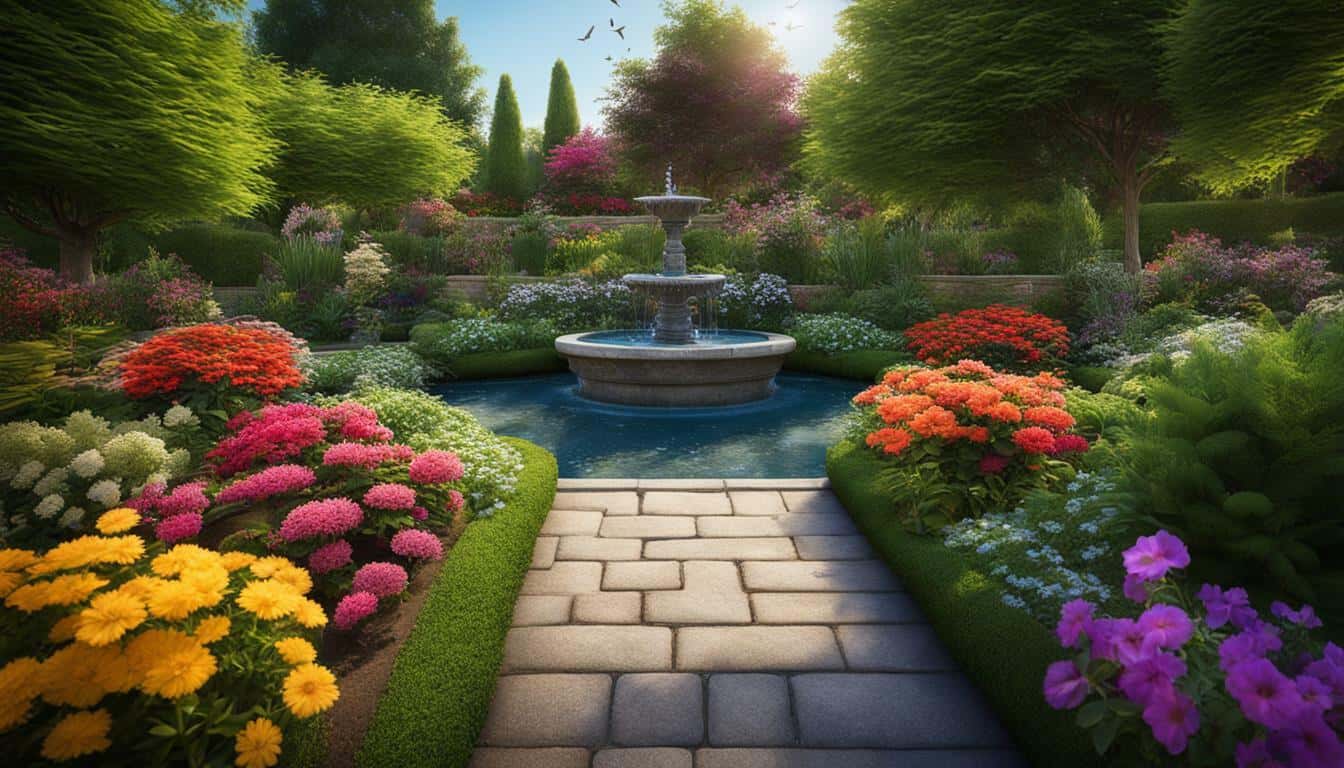
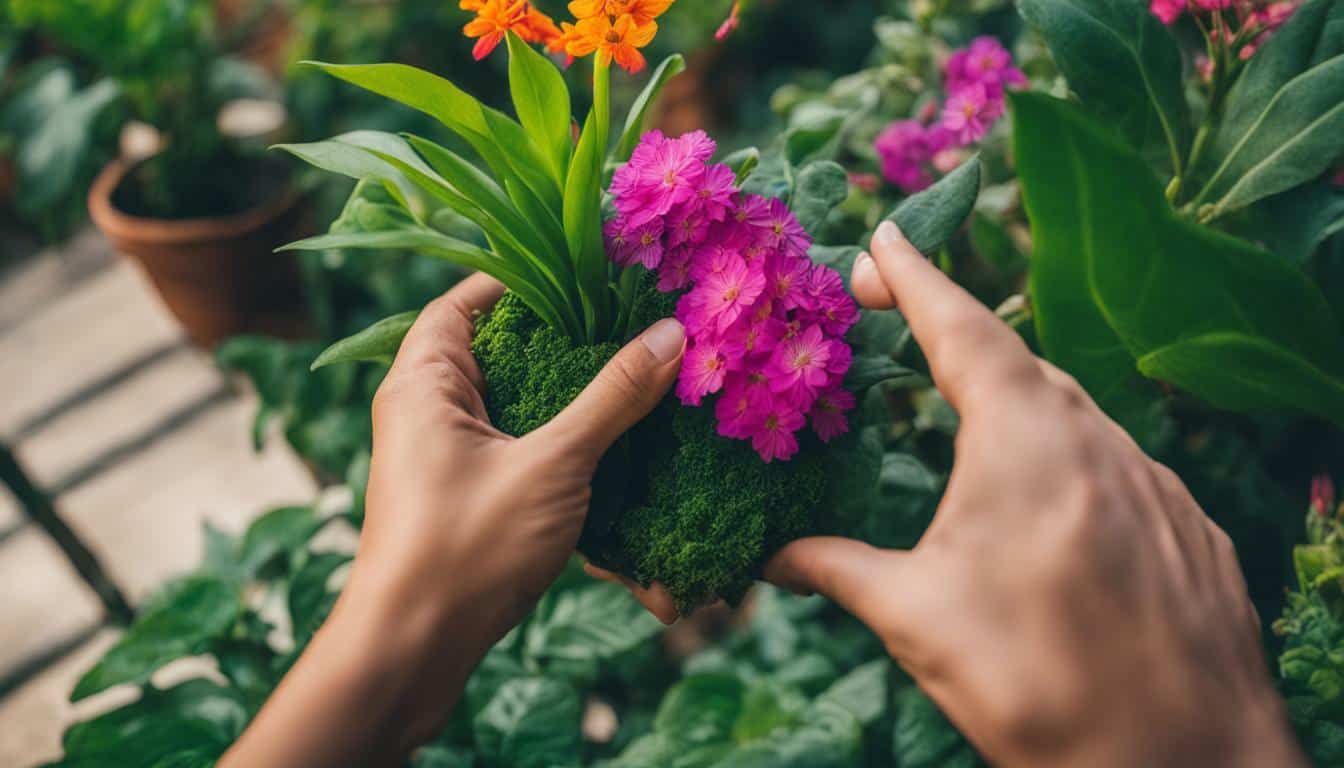
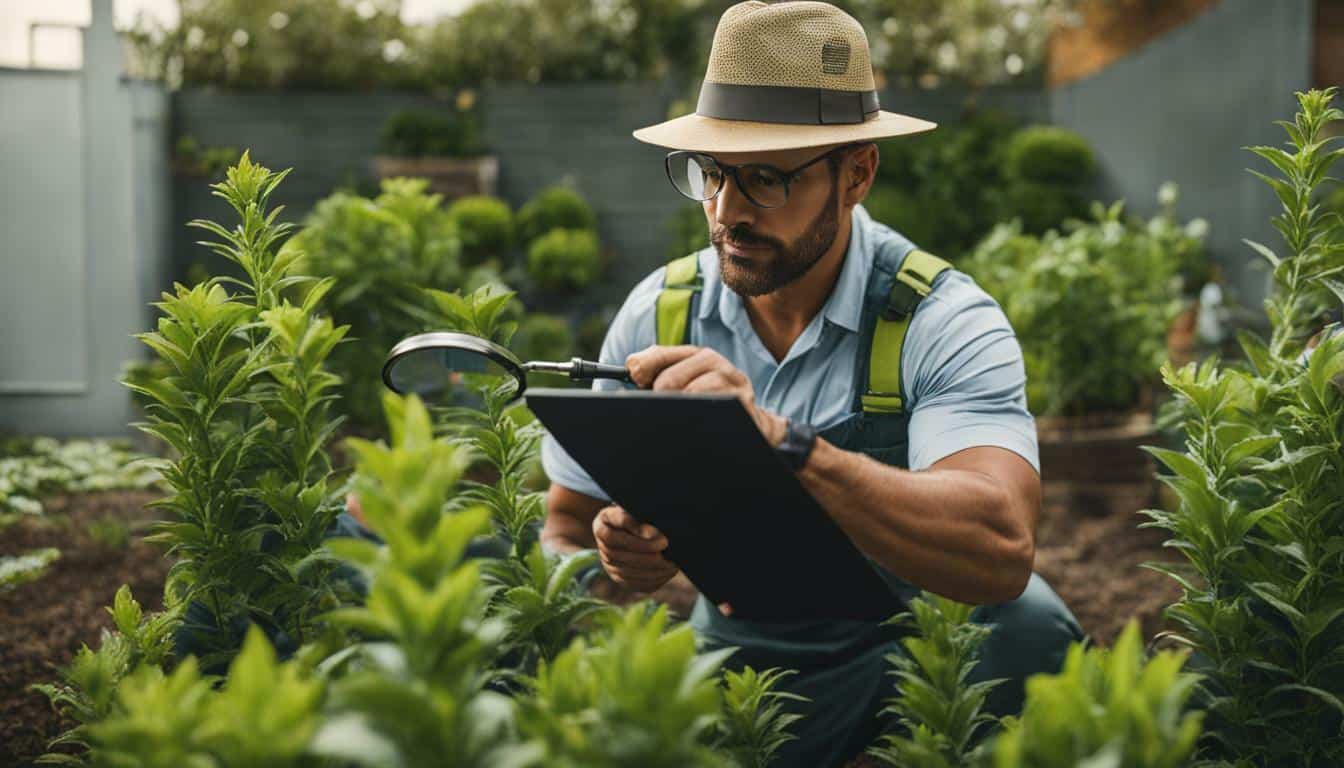

Leave a Reply